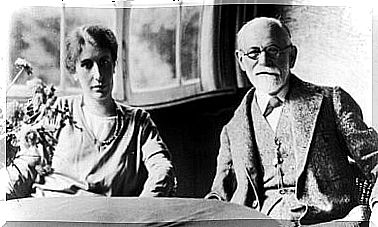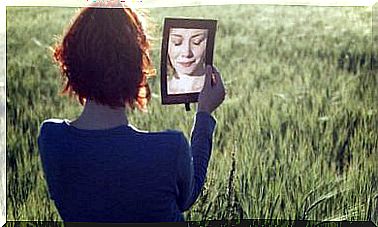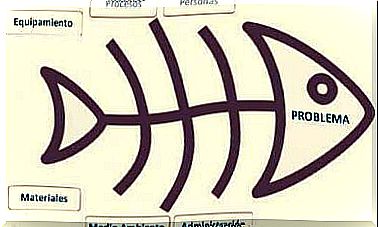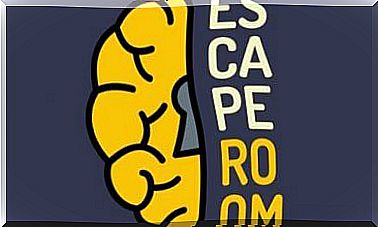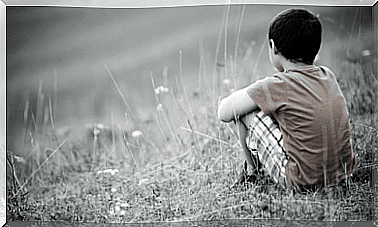Hippophobia, The Irrational Fear Of Horses
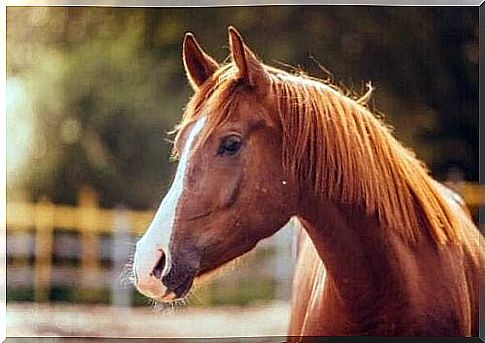
Fear is a natural response that in an evolutionary sense has helped us survive in a world full of dangers. For this reason, it is common for humans to feel a (sometimes exaggerated) respect for certain animals. This respect can also turn into fear in certain circumstances. In this article, we analyze the fear of horses.
The excessive fear of horses is not very common, but some people feel an intense fear of these creatures, one that can even lead to panic attacks. When it comes to horses, the term is hippophobia.
These large animals, which many find beautiful, noble and a symbol of freedom, do not usually surround us in our daily lives. This lack of familiarity and knowledge about them can generate an intense fear in some people. However, phobias are the term for irrational fears that are not related to real threats.
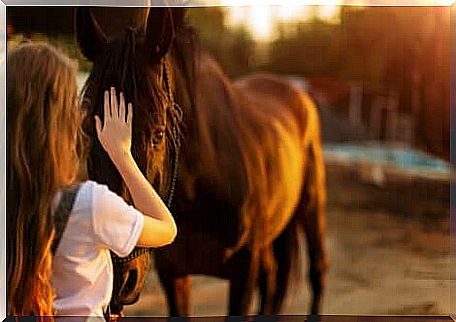
The symptoms it causes
As with all phobias, the fear of horses creates anxiety. The most common symptoms are sweating, trembling, headache, nausea, dizziness, tachycardia, hyperventilation and even vomiting.
For a person to be considered suffering from hippophobia, they must have experienced these symptoms, in addition to the excessive fear, for at least six months.
These symptoms usually occur when they see or are near these animals. But they can also occur due to something as harmless as the phobic thinking about the animals.
In other words, a person with the intense fear of horses can be greatly affected just by looking at a picture of horses. Even hearing a story about someone you know who in some way relates to horses can trigger similar reactions. Fear varies depending on the person and stimuli.
Since we do not usually encounter these animals in our daily lives, this phobia does not usually affect the lives of those who suffer from it very much. However, these people try to avoid all circumstances where they may come into contact with a horse.
The fear can also extend to other experiences. The mere fact of seeing the figure of a horse on a carousel can mean that they never go to amusement parks.
The origin
As a rule, phobias develop from traumatic experiences related to the object of fear. In this case, for example, it may be from falling off and injuring yourself, or being attacked by a horse. But the person does not necessarily have to have experienced the trauma personally. The fear may have originated in having heard a story about the event or have observed it from a distance.
As with other phobias, you can also inherit a fear of horses. This means that you can suffer from hippophobia because you have learned from your mother or father that horses represent danger. Thus, from a young age one can develop an avoidant behavior linked to horses and to the thought of danger.
Sometimes phobias also arise from previous anxiety problems or disorders. These can generalize the fear and feeling of danger to other, unrelated stimuli. Another hypothesis is that in the phylogenetic sense we have inherited the fear of certain animals for survival. However, this is a hypothesis that not everyone agrees with.

How to treat this phobia
As with all other phobias, three lines of action are usually implemented when trying to treat the disorder. These three are cognitive restructuring, systematic desensitization and relaxation techniques.
The first goal is to transform the beliefs one has about horses into a more adaptable and realistic way.
Systematic desensitization focuses on exposing the person to the stimulus of the phobia a little at a time. To begin with, the therapist will make a list with the patient of all possible horse-related events or situations that frighten them. Then they rank them according to the degree of anxiety they cause.
Once they have done this, they begin to include relaxation techniques in the therapy. The patient may then be exposed to stimuli gradually, depending on the degree of anxiety and emotional intensity they create in the patient.
If at the bottom of the list (the least traumatic), for example, is thinking of a stable full of horses, then the therapist will work with this idea while performing the relaxation techniques to reduce anxiety.
Once the patient has overcome his fear of this thought, and the thought no longer affects the patient negatively, the therapist moves on to the next item on the list, and so on.
An effective technique
This technology is very effective, as it is based on elements chosen by the patients themselves. At the end of the treatment, the person will be able to approach a horse, touch it and even ride it.
Regardless of the situation or case, so to overcome the fear of horses or other animals, we recommend that you go to a psychologist. The treatment will not only reduce, or even eliminate, the fear. It will also give you resources to meet other phobias.



